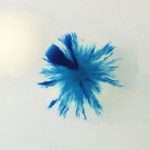Lien vers Pubmed [PMID] – 25020131
Expert Rev Vaccines 2014 Oct;13(10):1163-5
Pertussis or whooping cough is a respiratory disease caused by Bordetella pertussis or Bordetella parapertussis that are only known to infect humans. This severe and acute respiratory disease presents epidemic cycles and became a vaccine-preventable disease in the 1940s/1950s when developed countries introduced vaccination. The first type of vaccine developed against this disease was a whole-cell pertussis (wP) vaccine containing inactivated B. pertussis bacteria. Most developed countries produced their own vaccine and given the pediatric nature of the disease at the time of licensure, infants and toddlers were the primary targets and were thus massively vaccinated. The characterization of few virulence factors produced by B. pertussis enabled the development of second-generation pertussis vaccines called the acellular pertussis (aP) vaccines. These only contain 1-5 purified, detoxified B. pertussis proteins and were first introduced in Japan around 30 years ago. Australia, Europe and North America introduced aP vaccines approximately 15 years later, which replaced wP vaccines since then.


